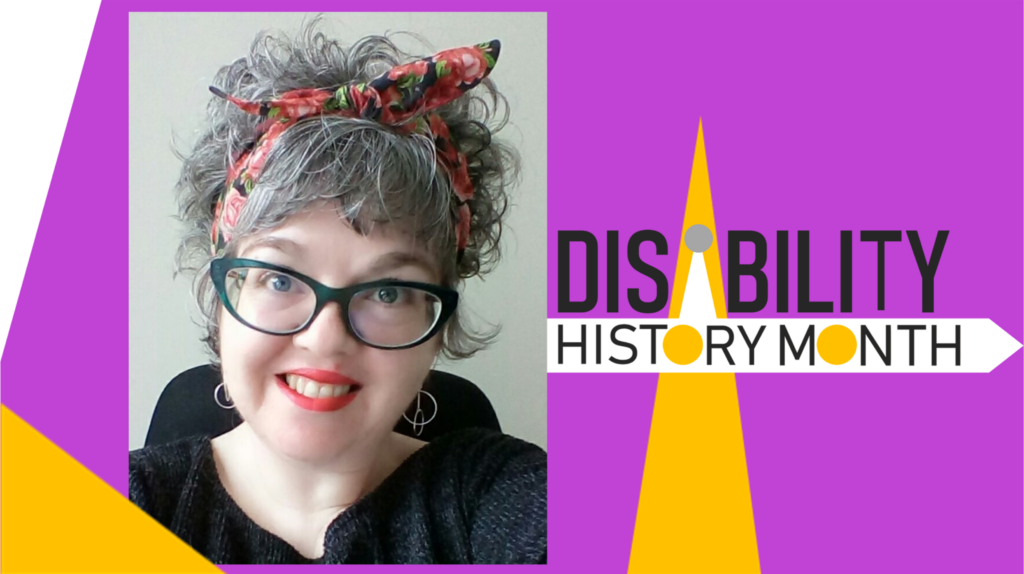The theme this year of the IDDP is Transformative Solutions for Inclusive development: the role of innovation in fuelling an accessible equitable world. In this blog, I want to focus on a most basic transformative tool (solution) we have and that is the power of the words and language used around disability and the way disabled people are portrayed.
The name of this event, celebrated annually on the 3 December, is described in two ways: ‘The International Day of People with Disabilities’ and the description the Humber and North Yorkshire Partnership, Disabled people and their organisations use and ‘The International Day of Disabled People’.
To a non-disabled person, there may not seem to be too much difference in the term disabled person and person with disabilities but, for many empowered disabled people, the difference is massive because it defines quite differently what (the) ‘disability’ is, whose has responsibility for it and what our opportunities / life chances are as a result.
Disabled person is the terminology of the social model of disability – the solutions and empowering focus of the model and language associated with it are important, because, it comes from lived experience. ‘Person with disability’ is terminology that came from the non-disabled majority. When we describe ourselves / our experience as Disabled people we are saying the disability we experience, is caused by ableist attitudes, physical and other barriers. Viewing disability in this way, is important because it has the power to define your identity, your experience and, influence/ set the expectations for the way you are seen and treated. From experience I know like other disabled people, I am most empowered, enabled and included when people understand and apply and use the social model and the language associated with it.
Being questioned and challenged about the language I use is something I still experience today, as Disabled people, we need words to describe the experience from our perspective, words like ‘able-passing’ (meaning the impact of internalised ableism) so that when we are questioned about it or experience ableist microaggressions or have our experiences minimised by the language of a majority, whether hurt is intended or not, it has impact for my/our emotional labour, and that is quite a toll, with impact for our health and wellbeing – the theme of UKDHM this year.
In the article Changing the narrative on disability: is representation in books getting better? | Books May 2022 it identifies that “While there are some novels with disabled characters out there, a concerning number of them stick to damaging tropes, perpetuating stereotypes rather than portraying disabled people with the same depth and complexity as other characters. There’s either “a tragedy narrative where the character dies at the end, or a narrative where either the person miraculously recovers, or it’s discovered that their disability or illness was fake all along”. (see the 10 main stereotypes of Disabled People.)
This UKDHM and leading up to IDDP, the team at North Lincolnshire Libraries are doing some fabulous work promoting in the libraries and on social media, books by Disabled authors and / or children’s fiction with a positive portrayal of disabled people. See the links below:
- North Lincolnshire Libraries UKDHM post 23 November
- North Lincolnshire Libraries UKDHM post 28 November
- North Lincolnshire Libraries UKDHM post 30 November
Stories are powerful things, the visibility and representation of diverse Deaf, Disabled and neurodivergent people is important because it shapes the internal narrative a person develops about the way they and others see and value them. As a child I do not remember reading a book with a character that was like me – there was no representation.
I do remember the Clara character in Heidi and how stereotyped and quite tragic a character, Clara was portrayed to be. Things are beginning to change but non-disabled actors can still win an Oscar for playing the disabled character with a portrayal that might please the (unconscious) bias/understanding of a majority non-disabled audience. The question to ask though, is how authentic (or damaging/tragic) a portrayal is it and, how might a disabled actor, or writer portray the characters/ story differently?
Stories, language and narratives matter and, authentic and diverse representation is transformative.

